Retirement, a period of life we all look forward to, can also be fraught with financial insecurities. The golden years are supposed to be stress-free, filled with tranquility and comfort. However, financial challenges often lurk in the shadows, casting doubt on your ability to sustain the lifestyle you desire. This is where Reverse Mortgages come into the picture, often proving to be a boon, potentially saving your retirement. Let’s take a look at how Reverse Mortgages can save your retirement.
Reverse Mortgages Save Retirement: A Deep Dive
What Are Reverse Mortgages?
A reverse mortgage is a type of home equity loan, usually designed for homeowners who are 62 years of age or older. It allows you to convert a part of the equity in your home into cash, giving you access to money that you can use in a variety of ways, without having to sell your house.
How Do Reverse Mortgages Work?
Unlike a traditional mortgage where you make payments to a lender, a reverse mortgage pays you. Sounds too good to be true, right? Well, here’s the catch: the loan, along with interest and fees, needs to be repaid when the homeowner moves out of the house permanently, sells the home, or upon their demise.
How Can Reverse Mortgages Save Your Retirement?
By providing a steady stream of income, reverse mortgages can significantly supplement your retirement savings and Social Security benefits, acting as a financial safety net. They offer you the luxury to enjoy your retirement years without the need to downsize your lifestyle or worry about outliving your savings!
Reverse Mortgages and Social Security
Enhancing Social Security Benefits
A significant advantage of reverse mortgages is their potential to enhance Social Security benefits. By opting for a reverse mortgage, you can delay claiming your Social Security benefits until you reach the full retirement age, or even beyond. This results in higher monthly benefits for the rest of your life, significantly bolstering your retirement income.
The Interplay Between Reverse Mortgages and Social Security
Reverse mortgages can serve as a bridge, allowing you to delay tapping into your Social Security until it’s most advantageous. This strategy is especially beneficial if you retire before your full retirement age and don’t want to take a reduced Social Security benefit.
The Role of Companies Like LeaderOne Financial
LeaderOne Financial, including teams like Roller Mortgage, play a pivotal role in helping retirees navigate the world of reverse mortgages. These professionals offer expert advice and financial services to make the process smooth and efficient. They ensure that the financial strategy you opt for aligns with your retirement goals, guiding you every step of the way.
FAQs on Reverse Mortgages and Retirement
Is a reverse mortgage a good idea for retirement?
A reverse mortgage can indeed be a good idea for retirement, especially if you’ve got substantial home equity and are looking to supplement your income.
Does a reverse mortgage affect my Social Security benefits?
No, reverse mortgage proceeds are considered loan advances and not income. Thus, they don’t affect your Social Security benefits.
How does a reverse mortgage get repaid?
The repayment of a reverse mortgage usually occurs when the borrower moves out of the home permanently, sells the home, or passes away.
Can I get out of a reverse mortgage?
Yes, a reverse mortgage can be repaid at any time without penalty. However, make sure to consider the accrued interest and fees.
Is LeaderOne Financial a good choice for my reverse mortgage?
Absolutely, LeaderOne Financial, with its experienced team like Roller Mortgage, can provide the expert advice and assistance you need in making informed decisions regarding reverse mortgages.
Are there alternatives to a reverse mortgage?
Yes, alternatives include home equity loans or lines of credit, downsizing, or selling and moving to a less expensive home.
Maximizing Your Retirement Strategy: A Balancing Act
Using Home Equity Wisely
Your home equity is a valuable asset. It’s vital to use it wisely and consider it as part of your overall retirement strategy. A reverse mortgage can help in leveraging this asset, but like any financial decision, it should be approached with caution and thorough understanding.
Balancing Social Security and Reverse Mortgage Benefits
Weighing the benefits of reverse mortgages and Social Security against the costs and potential risks is a key aspect of retirement planning. Delaying your Social Security benefits while using reverse mortgage proceeds can provide a higher overall income, but it’s crucial to consider factors like living expenses, health care costs, and potential changes in home value.
Seeking Expert Advice
Navigating the world of reverse mortgages and retirement planning can be complex. Working with trusted professionals such as the LeaderOne Financial Roller Mortgage Team can offer clarity and ensure your retirement plan aligns with your long-term goals.
The LeaderOne Lowdown on Reverse Mortgages and Retirement
In the journey towards a secure and comfortable retirement, reverse mortgages can be a lifeline. When paired with Social Security, they can significantly supplement your income, potentially even saving your retirement. It’s a powerful tool in your financial arsenal, but it’s vital to understand how it works and its implications fully.
Remember, every financial strategy comes with its own set of advantages and disadvantages. Therefore, it is essential to explore your options, understand their potential impacts, and make decisions based on your unique circumstances and retirement goals. With careful planning and wise decisions, you can turn the golden years of your retirement into a period of financial stability and peace.
It’s never too early to start planning. Secure your financial future today. Happy retirement planning!



